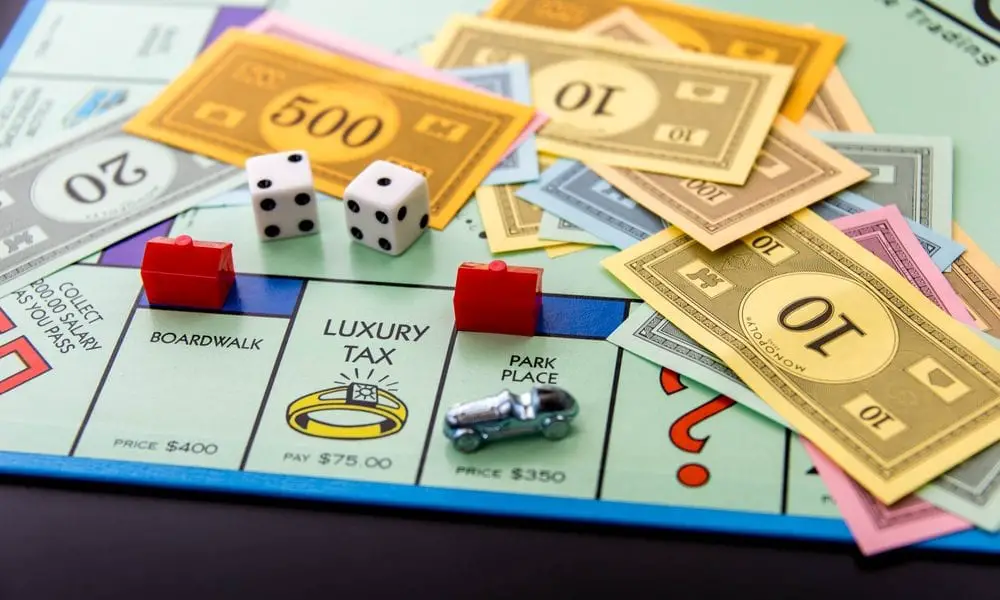
CommonCentsMom.com is advertiser-supported: we may earn compensation from the products and offers mentioned in this article. However, any expressed opinions are our own and aren't influenced by compensation. The contents of the CommonCentsMom.com website, such as text, graphics, images, and other material contained on this site (“Content”) are for informational purposes only. The Content is not intended to be a substitute for professional financial or legal advice. Always seek the advice of your Financial Advisor, CPA and Lawyer with any questions you may have regarding your situation. Never disregard professional advice or delay in seeking it because of something you have read on this website!
Playing board games can be a great family pastime. It’s a fun way to spend quality time together and engage in friendly competition. It also provides an opportunity for children to improve their ability to focus, social skills, and math skills. Moreover, depending on the game, they can learn about all kinds of things, from the basics of investing to the realities of running a farm to the politics of 15th century England.
So let’s take a look at the 15 best family board games.
1. Scrabble
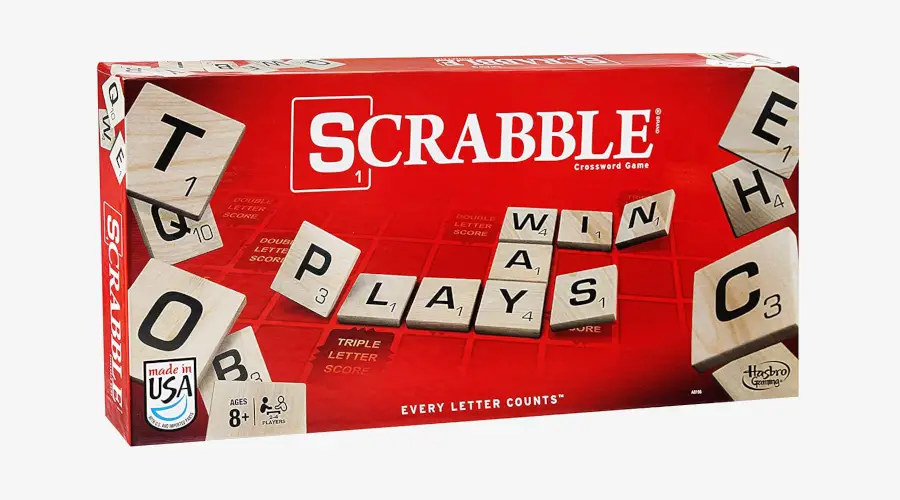
Scrabble is a classic board game. You need to spell words in a crossword fashion. The more complicated the word, the more points you are awarded for it, the aim being to earn the highest score. This may not seem like the most exciting premise to those who haven’t tried this game yet, but Scrabble is surprisingly engaging, especially if you have a competitive streak. Moreover, it also provides educational value, since players inevitably expand their vocabularies as they try to come up with increasingly sophisticated words. That makes it a perfect game to enjoy with kids. Who knew that learning could be this much fun?
2. Monopoly
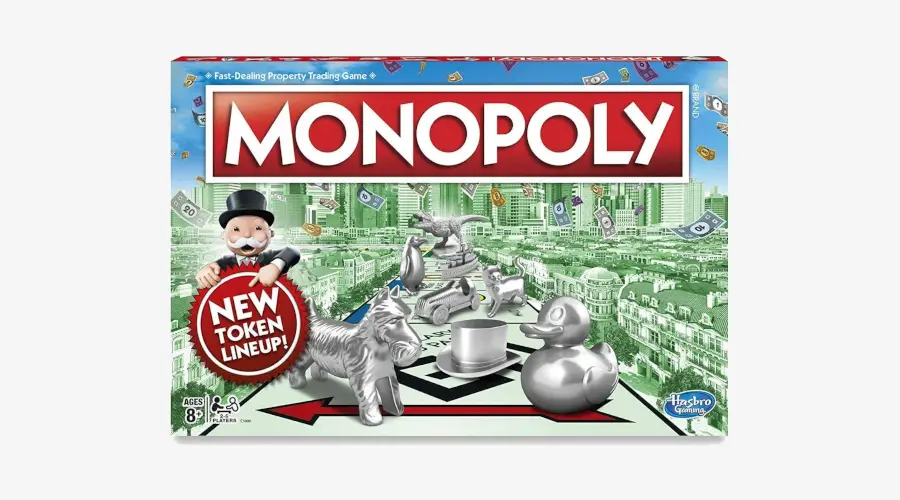
Monopoly is one of the most popular board games out there. You need to manage your money well, make smart investments, and become the wealthiest capitalist in the game (all while dealing with annoying hiccups such as going to jail!). Monopoly is simple enough to be enjoyed by kids and engaging enough to be appreciated by adults. Talking about kids, this game can help them improve their maths skills since it requires counting money, evaluating investment options, etc.
3. Trivial Pursuit
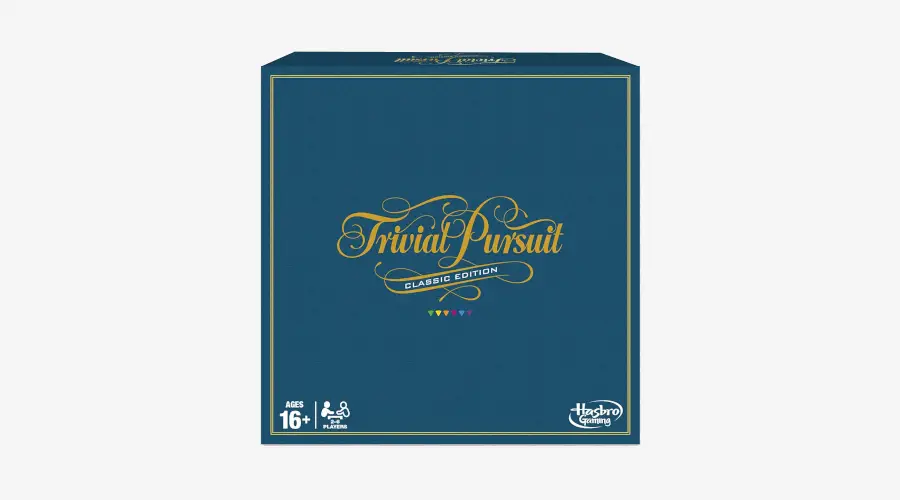
Who doesn’t like trivia? This board game features over 2,400 trivia questions from six categories:
- Geography.
- Entertainment.
- History.
- Art and Literature.
- Science and Nature.
- Sports and Leisure.
These questions include anything from “Which computer company introduced the mouse?” to “What is the actual color of the sun?”. The aim of Trivial Pursuit is to make your way to the center of the board and then answer one final question once there. Of course, once you have memorized the answers to all the questions, the game loses its replayability, but it will take you quite a while to get there. It’s worth noting that these trivia questions are quite challenging as this game is intended for players aged 16 and above.
4. My First Orchard
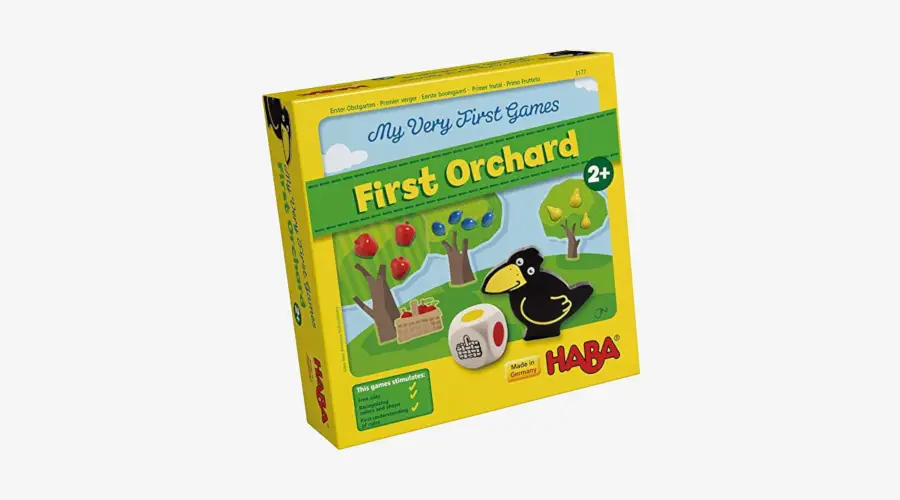
My First Orchard is an adorable game that you can play with toddlers as young as 2 years old. It’s a cooperative game where players work as a team to pick fruits from the trees before the raven reaches them. It helps children learn to count, improve color recognition, and develop better social skills. The gameplay only takes around 10 minutes which is perfect for the little ones.
5. Orchard

My First Orchard is actually a simplified version of Orchard, a popular board game that has celebrated its 30th birthday back in 2016. The former can be played by children as young as 2 years old, meanwhile, the latter is meant for kids between the ages 3 and 6, so it’s significantly more complicated. That being said, the aim of Orchard is the same, the players need to work as a team to pick fruits before the raven gets to them. Did your toddler love My First Orchard? Then consider getting them Orchard as an upgrade.
6. Agricola
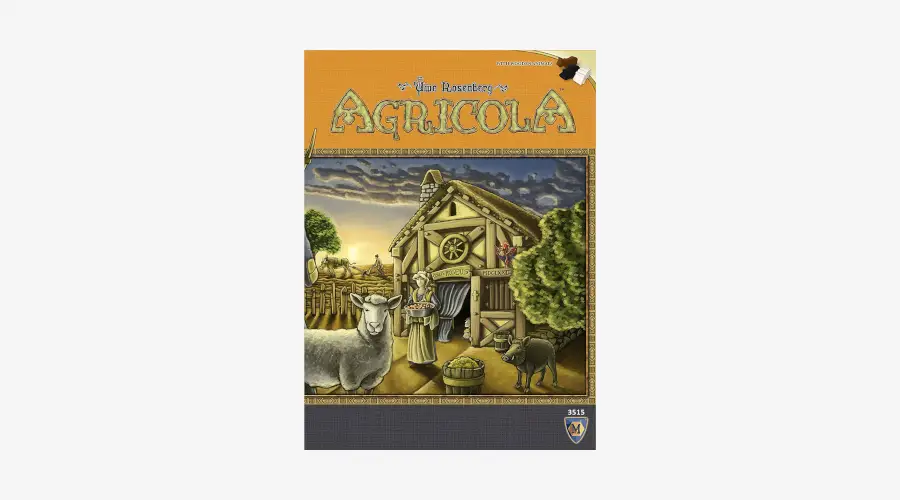
Agricola is a game beloved by board game enthusiasts worldwide. You start the game as a farmer who lives with their spouse in a wooden shack. Talk about humble beginnings. From there, you work towards becoming wealthy. Agricola requires strategic thinking, careful management of resources, and knowing when to stick to your plan and when to react to what your opponents do. Of course, there’s an element of luck involved, but this is a skill-based game rather than a luck-based one.
7. Catan
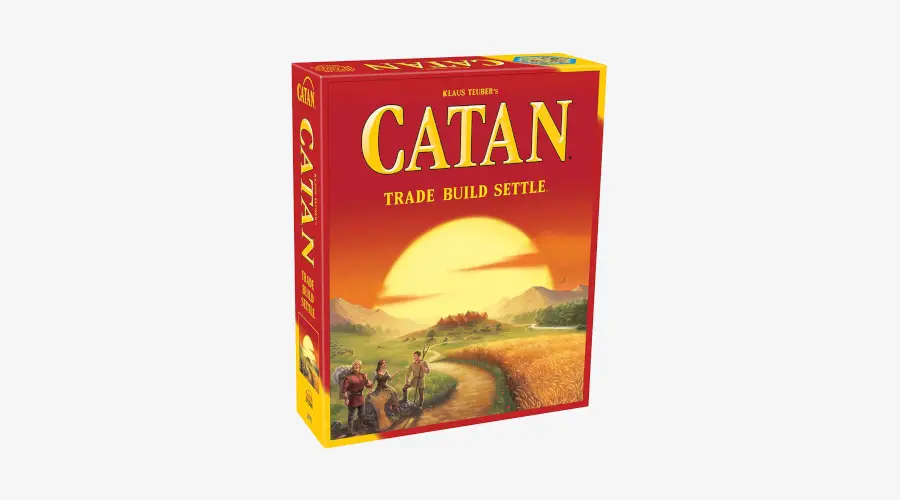
Catan is another favorite among board game enthusiasts. It starts with you arriving on the island of Catan with a group of settlers. Then you explore the island, establish new settlements, acquire resources, build roads, trade with other players, and more. Your aim is to lead your group of settlers to victory by becoming the most dominant civilization in Catan. And that is no easy task. You will need to manage your resources well, get the hang of trading, and be clever about developing your civilization. There’s also just the right amount of luck involved so that each game is completely different. That being said, it’s the players’ skills that determine who wins.
8. Life on the Farm
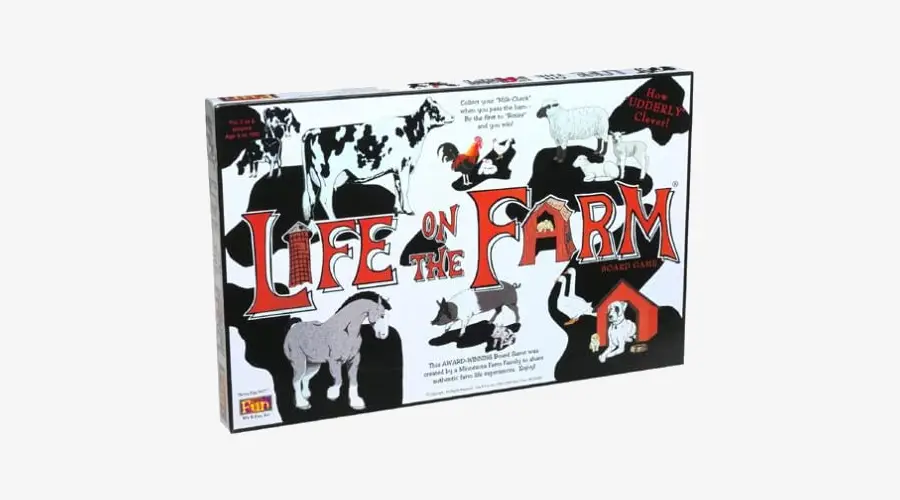
Want a realistic farming board game set in modern times? Well, Life on the Farm was created by a Minnesotan farming family, so it’s no surprise that it introduces you to the ups and downs of running a farm. You start the game as a farmer whose aim is to retire as quickly as possible. The player who retires first wins! Of course, life on a farm is full of unexpected events (such as wild dogs attacking your cows!), so be prepared to face setbacks along the way! This game is somewhat similar to Monopoly, so it may help children to improve their math skills and better understand how to manage money. It’s worth noting that this is a luck-based game since you are at the mercy of the dice.
9. Labyrinth
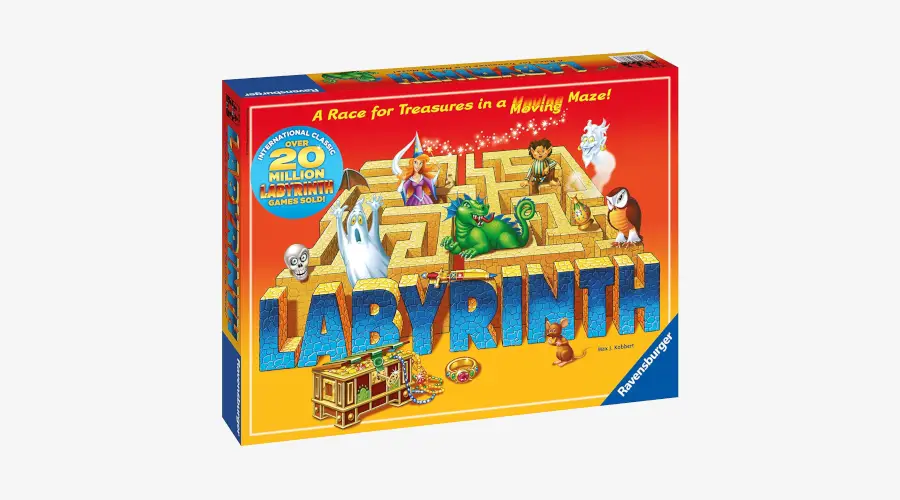
Labyrinth is a popular board game in which you have to collect seven treasures that are hidden in a labyrinth. While the premise is simple, what makes the game interesting is the ever-changing nature of the labyrinth. Players can use tiles to change its shape to block their opponents and advance faster themselves. This also means that the game has a great replay value as every time you need to navigate a different labyrinth.
10. Pandemic

Pandemic is a game where the players work together to fight diseases and protect the world from outbreaks, epidemics, and pandemics. You can choose from one of the five unique characters:
- Medic.
- Scientist.
- Dispatcher.
- Quarantine specialist.
- Researcher.
Once everyone has chosen a character, all players start in Atlanta at the Center for Disease Control. You then work as a team to build research centres, find cures, and contain diseases. You win the game once the team eradicates four diseases that have been plaguing humanity.
11. Cluedo
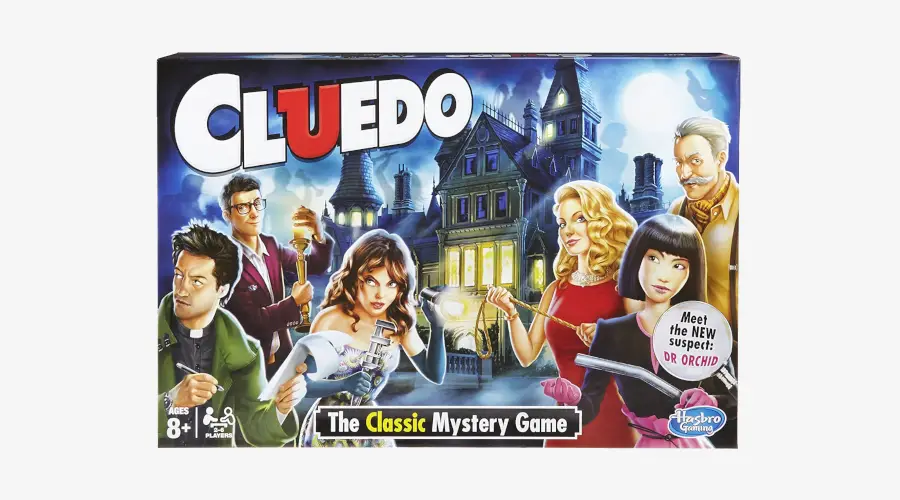
What can be better than a whodunit game on a dark and stormy night? Cluedo is a game in which the players have to figure out who has killed Dr. Black in his own home. There are six suspects but only one of them is the murderer. Your aim is to make the correct Who, What, Where accusation. It’s a perfect game for Agatha Christie fans!
12. Princes of Florence
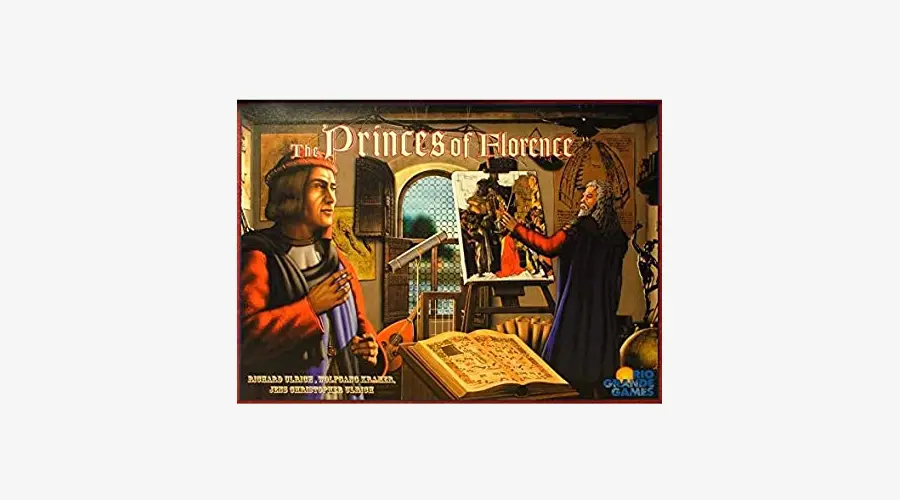
Renaissance is the period of time during which the European civilization transitioned from the Middle Ages to modernity. It started in what we now know as Italy, which at the time was a collection of city-states that shared a similar culture. Florence was one of the most prominent of these city-states and played a huge role in ushering this new era. In Princes of Florence, you are the head of one of the city’s dynasties and you aim to become the most renowned prince in Florence.
You can improve your reputation by building magnificent buildings, creating beautiful parks, inviting talented artists and famous scholars to live at your court, and more. This game provides an insight into the cultural climate of the Renaissance Italy city-states where being a patron of the arts and sciences brought prestige and where powerful families were trying to outcompete each other in this regard. This is quite a complex game, so it’s best suited for players aged 13 and above, but it can be a great way to get teenagers interested in history.
13. Atelier

While in Princes of Florence you played a Renaissance noble that was a patron to the arts, in this one you will play an artist managing an art studio in the 19th century. You will have to manage assistants, collect the necessary supplies, and complete famous works of art. As you complete the paintings, your studio’s reputation will grow, which will open up more opportunities. The player who collects the most points through paintings and patrons (as well as the First Master token) wins the game.
14. Lancaster
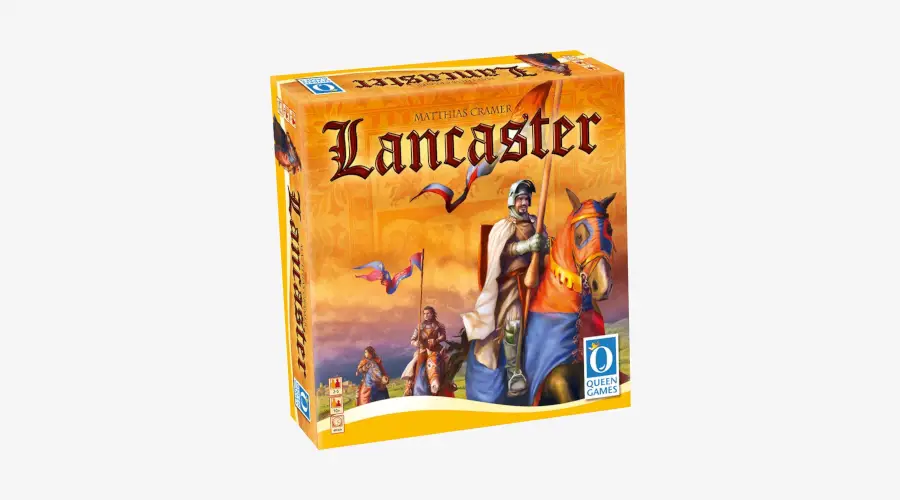
It’s the year 1413. The new King of England, Henry V of Lancaster, is ambitious. He wants to unify England and conquer France. Of course, he can’t do that all on his own, which is why he needs the support of nobles like yourself. You start out as a simple lord, but you want to become the most powerful ally of the king, which you can achieve through a combination of politics and military action. Ultimately, your aim is to acquire power, which is why the player with the most power points wins. This game is simple enough to be played by kids as young as ten, but also engaging enough to get them interested in English history.
15. Scythe
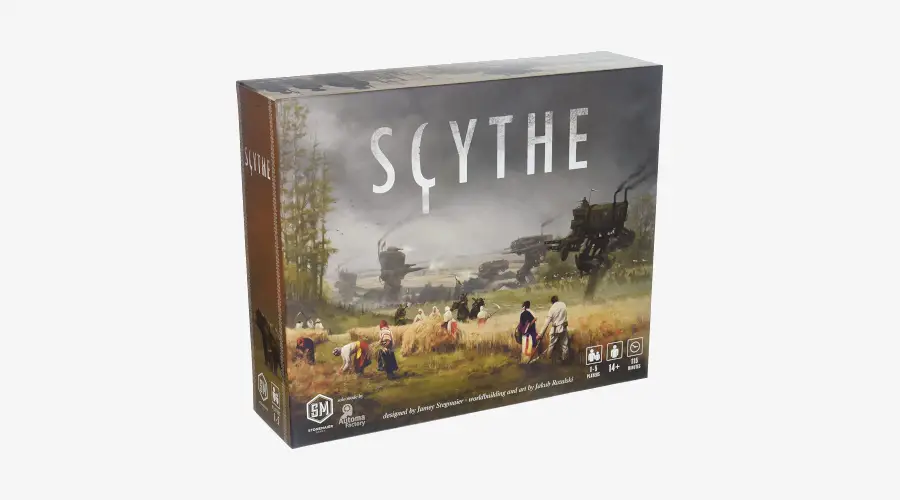
Scythe is an alternative history game set in the 1920s Europe that is still reeling from the great war fuelled by the mysterious city-state known as “The Factory” through its heavily armored mechs. However, now “The Factory” has closed its borders, drawing the attention of the neighboring countries. You are the leader of one of the five competing factions in Eastern Europe and your aim is to make your faction the most prosperous and powerful one in the region.
Scythe is a strategy game where the element of luck is limited. You’ll need to think ahead if you want to thrive in this dieselpunk world. It’s worth noting that the unique gameplay means that the game progresses at a rapid pace which makes it a great choice for large families. It can be played by up to 5 players! That being said, this game is not only complex but also quite grim, which is why it probably isn’t suitable for players younger than 14.
Conclusion
Playing board games allows the entire family to take a break from the screens, spend quality time together, and have fun.
It’s an activity that can be enjoyed by everyone, from kids to parents to grandparents, so it’s a great way to bond as a family.
It’s also important to remember that playing board games can be incredibly educational to children.
They need to understand the rules, do basic math calculations, think ahead, etc.
It can also help them learn to get along with others and manage their emotions.
So if you are looking for something fun to do with the entire family, consider picking up a board game. You won’t regret it!
And who knows, maybe board game nights will become a family tradition?







